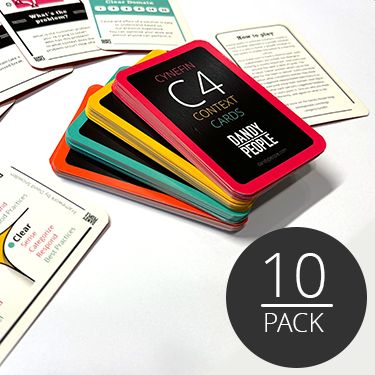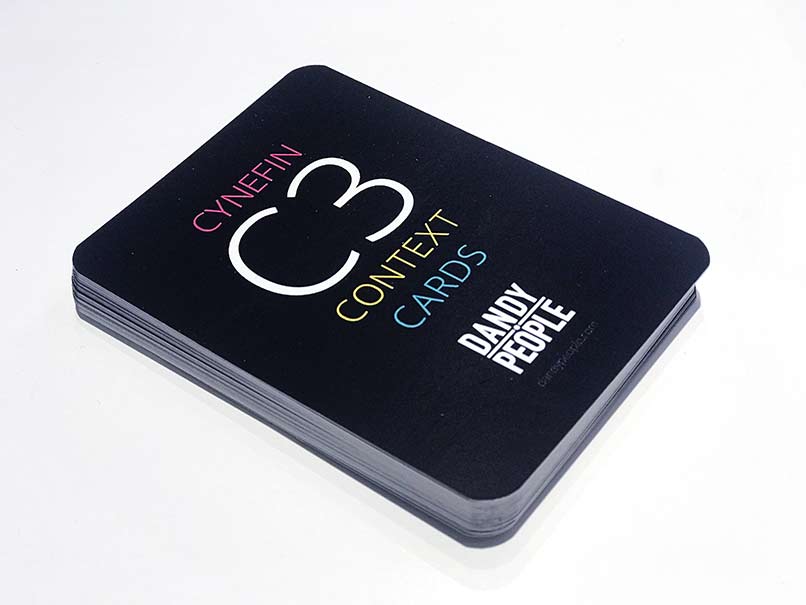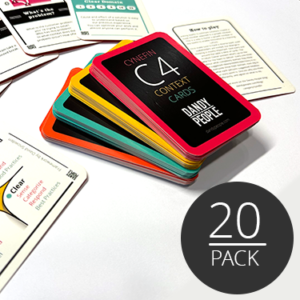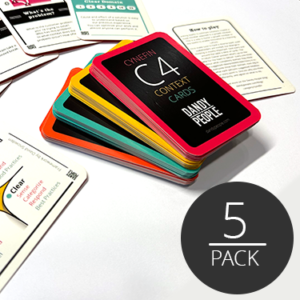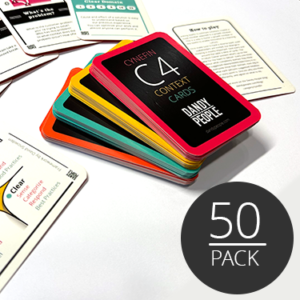80.00€
These cards are a tool to enable that growth mindset and open up dialogues between the people and competences needed to understand the problems and build the solution needed to create business and customer value.
Please note: you need one deck of card for every individual involved in the estimation of a problem the team should solve.
Description
These cards are designed by Dandy People to be used by Agile development teams as a tool to enable a growth mindset and open up dialogues between the people and competences needed to understand the problems and build the solution needed to create business and customer value.
Asking teams to estimate solutions creates a fixed mindset as opposed to a growth mindset. This is a way to foster a growth mindset in the teams to enable innovation & a learning culture.
New version: There now is cards for 4 team members in each pack. You need one deck of cards for every individual involved in the estimation of a problem the team should solve.
How can you use them?
Start in a fail-safe environment
To train your team(s) and to facilitate fail-safe learning you can first try the cards with teams and have them go through a diverse list of common deliveries and requirements that the team can understand. This usually opens up for a lot of new thinking, and if the team wants they can later use the cards when they bring in new stuff to their product and sprint backlog.
Like regular “planning poker”
You can, of course, use them any way you like, we´ve already seen teams find new innovative ways to use them. Our initial idea was that the team plays one and one, just as with regular scrum planning poker, but first they figure out in what domain the problem is in, obvious, complicated or complex – and then, they can choose between cards in that range, story points in the obvious domain, T-shirt sizes in the complicated domain – or just time boxes in the complex domain. This enables the team to start experimenting in time boxes to figure out the problem, test solutions & then start to build & deliver when they know they have solved the business and user problem.
To enable everyone to do the estimation someone with insight in the business/user problem (the PO, customer service or the customer perhaps) needs to describe what it is about and answer any questions the team might have.
Individual thinking is key
It´s important that each and every person first think by themselves of what domain the item might be in since we need to get everyone’s view on what they believe it is. That´s the true value of a cross-functional team. Then when everyone has shown their domain cards, you have the discussion between the people furthest apart in domains to see what they have perceived differently, and then the team agrees on a domain and run it again now picking the size card within that domain – and you have people furthest apart within the domain discuss again – and then you agree as a team.
When doing this “estimation” it might be that you need to invite other people than just the team, you need to get the people closest to the customer to join in to make this work, as well as all parts of the solution. So invite your client, the stakeholders, the UX and design people, the architect and others who might be involved to deliver customer value end to end if they are not already part of your team (then you might notice that they need to be in your team’s process somehow 🙂
Read how iZettle uses the cards to foster a Growth Mindset
Here you can read an interview made with an Agile Coach at iZettle on how he uses the Cynefin Context Cards to foster a growth mindset in his Agile team. https://dandypeople.com/blog/how-a-team-at-izettle-use-cynefin-context-cards/
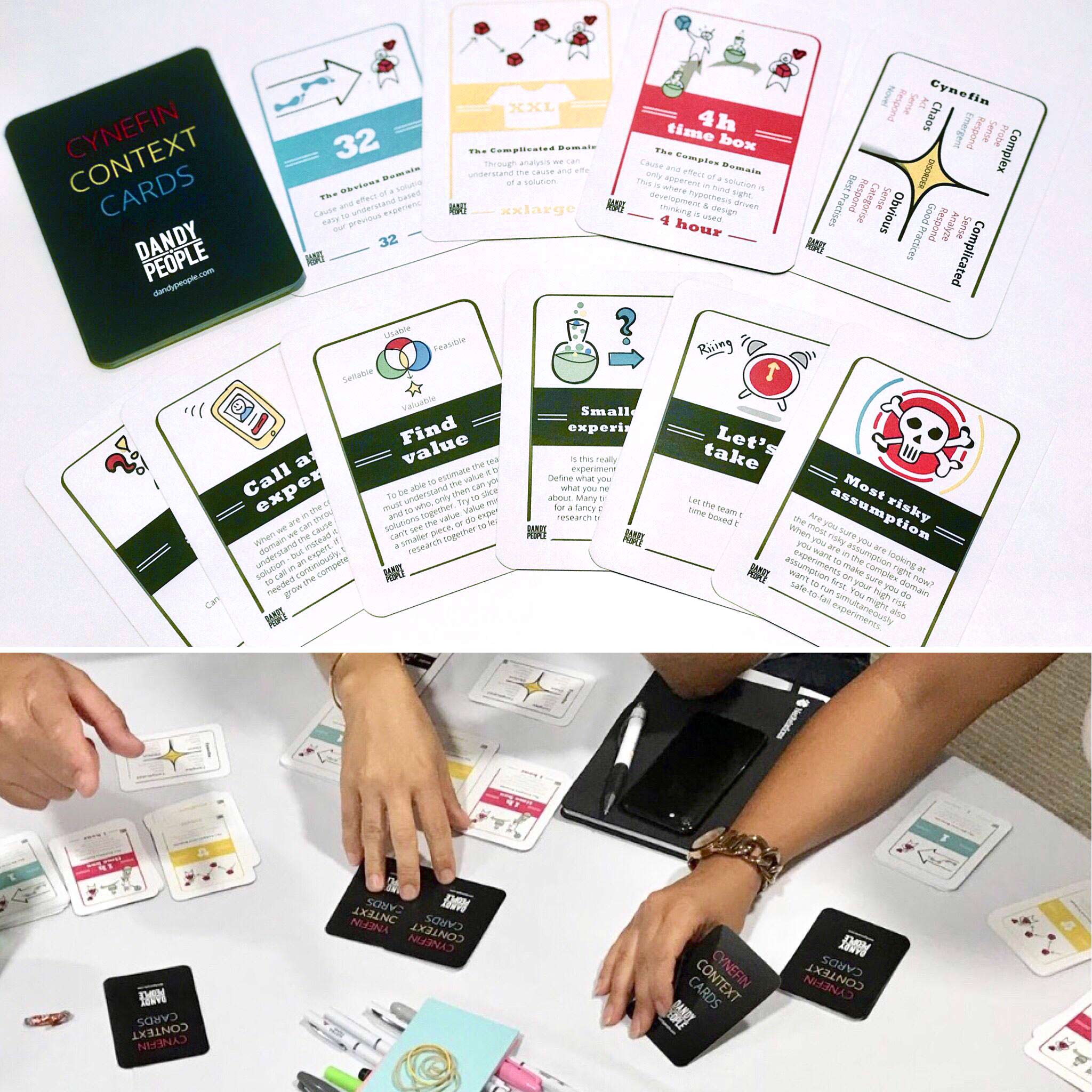
Additional information
| Weight | 1.2 kg |
|---|---|
| Dimensions | 28 × 31 × 4 cm |
